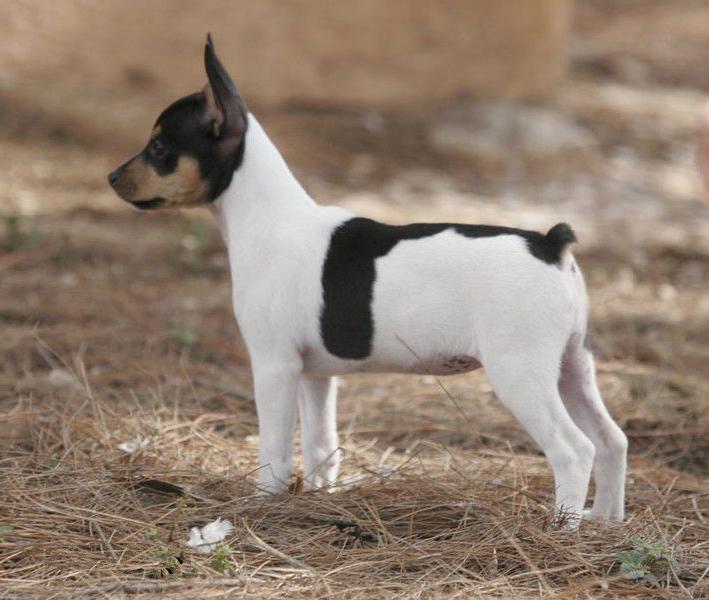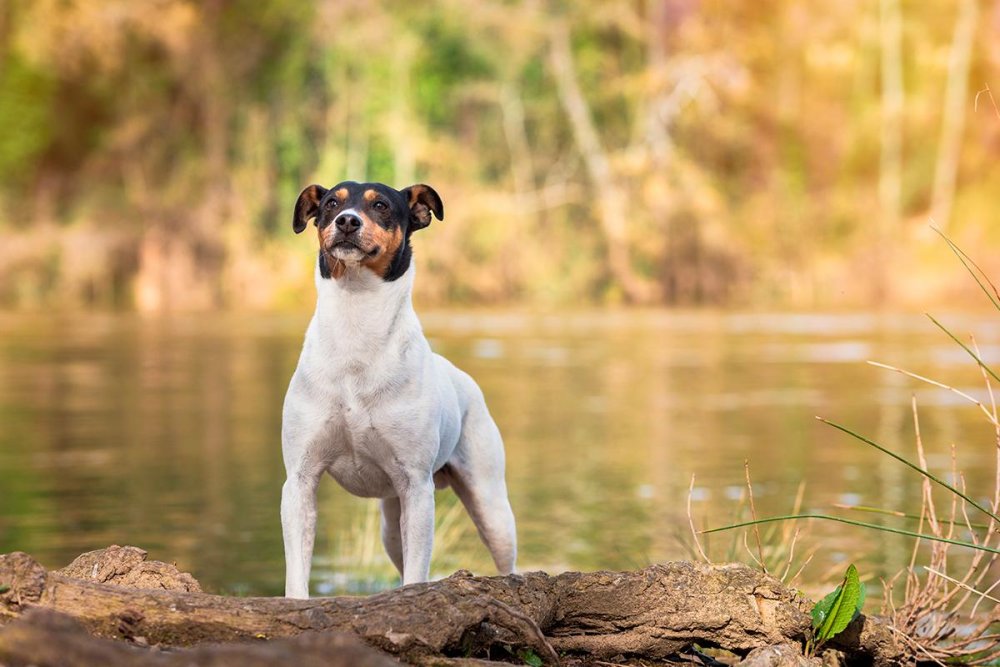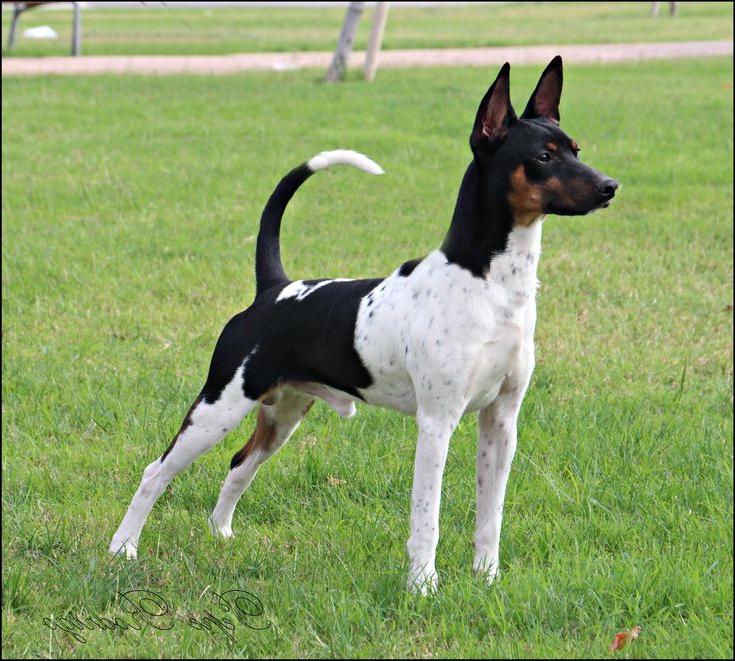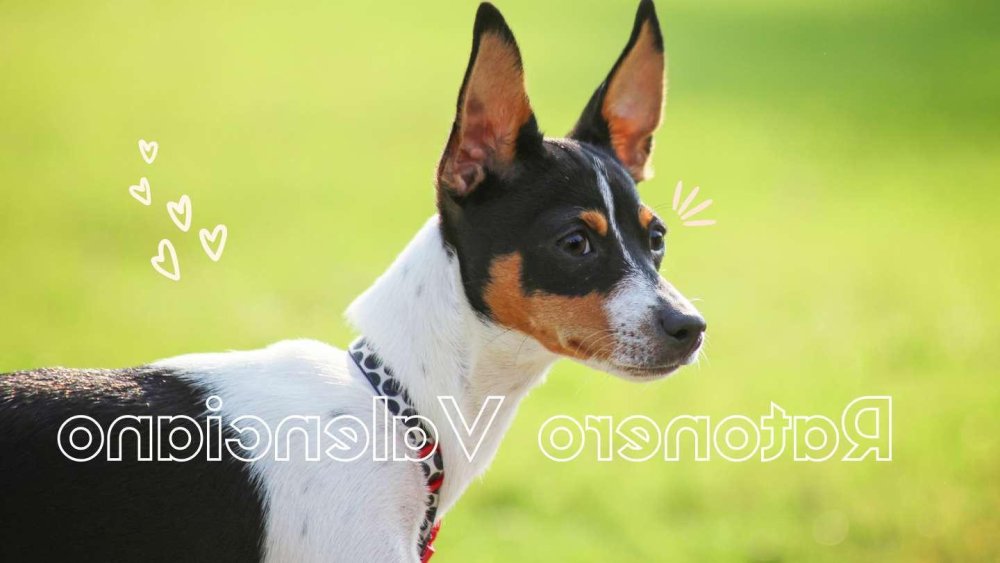- Breed Category: Terrier
- Country of Origin: Spain
- Average Height: 30-40 cm (11.8-15.7 in)
- Average Weight: 4-8 kg (8.8-17.6 lbs)
- Average Life Span: 12-14 years
- Grooming Requirements: Low, occasional brushing needed
- Exercise Requirements: High, needs daily exercise
- Coat Type: Short and smooth
- Coat Color Variations: Black, tan, white combinations
- Shedding Level: Low
- Ear Type: Erect
- Tail Type: Curled or straight
- Temperament: Energetic, alert, friendly
- Intelligence Level: High
- Barking Tendency: Moderate
- Compatibility with Children: Good with proper socialisation
- Compatibility with Other Pets: Generally good, early socialisation helps
- Training Ease: Relatively easy with consistency
- Common Health Issues: Generally healthy, watch for allergies
- Dietary Needs: Balanced diet, avoid overfeeding
- Energy Level: High
- Drooling Tendency: Low
- Sensitivity to Weather: Sensitive to cold
- Overall Maintenance Level: Low to moderate
- Original Purpose: Rat hunting
- Apartment Friendly: Yes, with sufficient exercise
- Best Suited For: Active families, rural or urban living
- Cost of Ownership: Moderate
- Unique Traits: Agile, excellent vermin hunter
Imagine a dog that combines the agility of a terrier with the loyalty of a shepherd. Meet the Ratonero Valenciano, a breed that’s as versatile as it is charming. Known for its keen hunting instincts and affectionate nature, this breed is a hidden gem among dog enthusiasts. This article aims to shed light on the Ratonero Valenciano’s unique characteristics, rich history, and essential care tips.
Originating from the Valencia region in Spain, the Ratonero Valenciano has a storied past. Initially bred for hunting rats and other vermin, these dogs quickly became beloved companions. Their history is intertwined with the rural life of Valencia, where they were indispensable in keeping homes and farms pest-free.
Early Development and Historical Significance of the Ratonero Valenciano

Early Development of the Breed
The Ratonero Valenciano, a breed with roots deeply embedded in the Spanish countryside, was developed with a clear purpose in mind. These dogs were bred to be agile and quick, perfect for the task of hunting rats and other small pests. Their development was driven by the need for a reliable working dog that could thrive in the rural environments of Valencia.
Role in Spanish Rat Hunting and Farm Work
In the farms and homes of Valencia, the Ratonero Valenciano was more than just a pet. These dogs were essential workers, tasked with keeping the rat population under control. Their keen senses and swift movements made them excellent hunters, and their presence was a natural deterrent to vermin. Beyond hunting, they also played a role in general farm work, showcasing their versatility and intelligence.
Key Historical Figures and Regions Involved
The breed’s development is closely linked to the rural communities of Valencia. While specific historical figures are not well-documented, the collective efforts of Valencian farmers and breeders were crucial. These individuals recognised the need for a dog that could handle the unique challenges of their environment, leading to the creation of the Ratonero Valenciano.
Physical Characteristics
Physically, the Ratonero Valenciano is a medium-sized dog with a lean, muscular build. Their coat is typically short and smooth, often featuring a mix of white, black, and tan colours. Their expressive eyes and alert ears give them a lively appearance, reflecting their energetic and curious nature. This breed is built for speed and agility, making them well-suited for their historical roles.
Appearance and Unique Physical Traits
The Ratonero Valenciano is a medium-sized dog, known for its lean and muscular build. This compact frame is perfect for the agility and speed required in its traditional roles. Their coat is short and smooth, often showcasing a striking mix of white, black, and tan colours. These distinctive markings not only add to their charm but also make them easily recognisable. Their expressive eyes and alert ears are a testament to their lively and curious nature, always ready to spring into action.
Temperament and Behaviour
When it comes to temperament, the Ratonero Valenciano is a delightful mix of energy and affection. They are known for their keen intelligence and quick learning abilities, making them a joy to train. These dogs are naturally curious and love to explore, which means they thrive in environments where they can be active and engaged. Despite their hunting background, they are incredibly loyal and form strong bonds with their families, making them excellent companions.
Personality Traits and Suitability as a Family Pet

Typical Personality Traits
The Ratonero Valenciano is a bundle of energy and intelligence. These dogs are always alert, ready to spring into action at a moment’s notice. Their sharp minds make them quick learners, and they thrive on mental stimulation. This breed is known for its high energy levels, so they need plenty of exercise to keep them happy and healthy.
Suitability as a Family Pet and Working Dog
As a family pet, the Ratonero Valenciano is a fantastic choice. Their affectionate nature and loyalty make them wonderful companions. They are also versatile working dogs, excelling in tasks that require agility and quick thinking. Whether as a pet or a worker, they adapt well to various roles, making them a valuable addition to any household.
Interaction with Children and Other Animals
These dogs are generally good with children, thanks to their playful and gentle nature. They enjoy being part of family activities and are patient with kids. When it comes to other animals, early socialisation is key. With proper introduction, they can get along well with other pets, although their hunting instincts might kick in around smaller animals.
Training and Exercise Needs
Training a Ratonero Valenciano is a rewarding experience due to their intelligence and eagerness to please. Consistent, positive reinforcement methods work best. They require regular exercise to channel their energy positively, so daily walks, playtime, and mental challenges are essential. This keeps them engaged and prevents boredom-related behaviours.
Training, Exercise, and Health of the Ratonero Valenciano

Importance of Early Training and Socialisation
Getting a head start on training and socialisation is crucial for the Ratonero Valenciano. These dogs are naturally intelligent and curious, so introducing them to various environments, people, and other animals early on helps them grow into well-rounded adults. This early exposure reduces the likelihood of behavioural issues and ensures they adapt well to different situations.
Recommended Training Techniques
When it comes to training, positive reinforcement is the way to go. These dogs respond well to rewards and praise, making them eager learners. Consistency is key, so regular training sessions that are short and engaging work best. Incorporating games and challenges keeps their sharp minds stimulated and makes learning fun.
Daily Exercise Requirements and Activities They Enjoy
The Ratonero Valenciano is an active breed that thrives on daily exercise. They need a good mix of physical and mental activities to stay happy. Long walks, agility courses, and interactive games are perfect for burning off their energy. They also enjoy activities that tap into their hunting instincts, like scent games or fetch.
Health and Lifespan
Generally, the Ratonero Valenciano is a healthy breed with a lifespan of around 12 to 15 years. Regular vet check-ups, a balanced diet, and plenty of exercise contribute to their longevity. Like all breeds, they can be prone to certain genetic conditions, so responsible breeding and health screenings are important.
Health and Care of the Ratonero Valenciano

Common Health Issues
The Ratonero Valenciano is generally a robust breed, but like any dog, they can face certain health issues. Some may be prone to hip dysplasia or patellar luxation, common in active breeds. Regular vet visits are crucial to catch any potential problems early.
Average Lifespan and Health Tips
With proper care, these dogs can live between 12 to 15 years. To keep them healthy, ensure they have a balanced diet and plenty of exercise. Regular mental stimulation is just as important as physical activity to keep their sharp minds engaged.
Preventative Care Recommendations
Preventative care is key. Regular vaccinations, flea and tick prevention, and dental care should be part of their routine. Annual health check-ups help monitor their overall well-being and catch any issues early.
Grooming and Maintenance
Their short, smooth coat is low-maintenance, requiring only occasional brushing to remove loose hair. Regular nail trimming, ear cleaning, and dental hygiene are essential to keep them in top condition.
Coat Care and Grooming Routines

Shedding and Seasonal Grooming Tips
The Ratonero Valenciano’s short, smooth coat is a breeze to maintain. While they don’t shed excessively, a bit of extra care during seasonal changes can help manage loose hair. A weekly brush with a soft-bristle brush or grooming mitt will keep their coat looking sleek and healthy. During shedding seasons, you might want to increase brushing to a couple of times a week to keep your home fur-free.
Diet and Nutrition
Feeding your Ratonero Valenciano a balanced diet is crucial for their overall health and vitality. Opt for high-quality dog food that meets their nutritional needs, focusing on protein-rich options to support their active lifestyle. Fresh water should always be available, and treats should be given in moderation to prevent weight gain. Regularly consult with your vet to ensure their diet is meeting all their health requirements, adjusting as needed based on age, activity level, and any specific health concerns.
Nutritional Needs and Feeding Guidelines for the Ratonero Valenciano
Nutritional Needs for Optimal Health
To keep your Ratonero Valenciano in top shape, focus on a diet rich in high-quality proteins, healthy fats, and essential vitamins. These nutrients support their active lifestyle and maintain their lean muscle mass. Look for dog foods that list meat as the first ingredient, ensuring they get the protein they need.
Foods to Include and Avoid
Include lean meats, fish, and vegetables in their diet. Avoid foods high in fillers, artificial preservatives, and excessive grains, as these can lead to weight gain and other health issues. Fresh fruits like apples and blueberries can be a healthy treat, but steer clear of grapes and chocolate, which are toxic to dogs.
Feeding Schedules and Portion Recommendations
Feed your Ratonero Valenciano twice a day, once in the morning and once in the evening. Portion sizes depend on their age, weight, and activity level, so consult your vet for tailored advice. Monitor their weight and adjust portions as needed to maintain a healthy physique.
Fun Facts and Trivia
Did you know the Ratonero Valenciano is sometimes called the “Spanish Rat Terrier”? This nickname highlights their historical role in pest control. Despite their hunting background, they are known for their gentle nature with children, making them excellent family pets.
Interesting Tidbits and Famous Ratonero Valenciano Dogs
Interesting Tidbits about the Breed
The Ratonero Valenciano, often referred to as the “Spanish Rat Terrier,” is a breed with a fascinating history. Known for their agility and intelligence, these dogs were originally bred to control vermin populations in rural Spain. Their keen senses and quick reflexes made them invaluable on farms, where they excelled at keeping pests at bay. Despite their working origins, they have a playful and affectionate side, making them wonderful companions.
One interesting fact about the Ratonero Valenciano is their unique ability to adapt to various environments. Whether in a bustling city or a quiet countryside, these dogs thrive as long as they have enough mental and physical stimulation. Their versatility is one of their most endearing traits, allowing them to fit seamlessly into different lifestyles.
Famous Ratonero Valenciano Dogs in Media or History
While the Ratonero Valenciano may not be as widely recognised as some other breeds, they have made their mark in local Spanish culture. These dogs have been featured in regional festivals and events, showcasing their agility and intelligence. Their role in traditional Spanish rat hunting has been celebrated in various forms of media, highlighting their historical significance.
In recent years, the breed has gained popularity among dog enthusiasts who appreciate their unique qualities. Although they may not have starred in blockbuster films or TV shows, their charm and capabilities have earned them a loyal following among those who know them best.
Final Thoughts

The Ratonero Valenciano is a versatile and charming breed. With its rich history and unique traits, it offers both companionship and utility. This breed’s agility and intelligence make it a joy for active families, while its affectionate nature ensures it fits well into family life. Embracing the Ratonero Valenciano means welcoming a loyal and energetic companion into your home. Consider adopting this remarkable breed and experience the joy it brings to everyday life.
